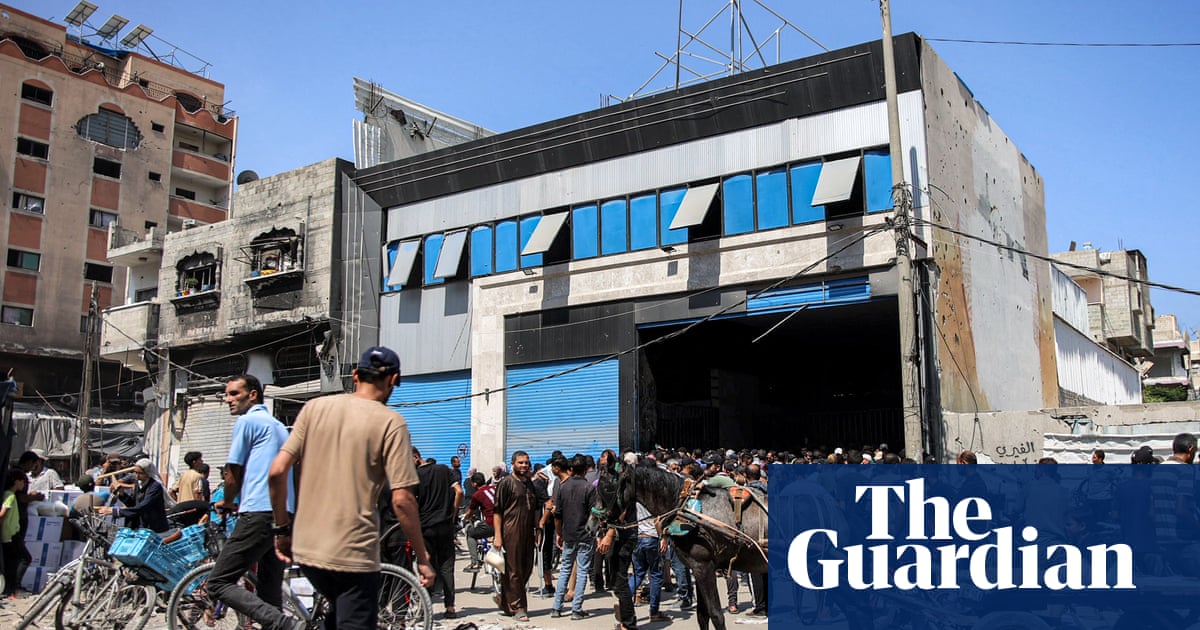An aid agency whose convoy was hit by an Israeli airstrike on Thursday has said that the four men killed were local community members who had asked to serve as an escort for the convoy.
The four men were the only casualties from the strike, which hit the lead vehicle in which they were travelling. The Israel Defense Forces (IDF) described them as “armed assailants” who had hijacked the convoy.
The incident has highlighted the extreme dangers being faced daily by humanitarian workers trying to deliver life-saving assistance in Gaza, under the threat of looting and assault by armed gangs and desperate civilians, while risking coming under fire from Israeli forces on the ground or drones constantly patrolling the skies.
The convoy was organised by a US-based NGO, Anera, which has been serving refugees and victims of violence in the region for more than 50 years.
It had partnered with a Dubai-based logistics company, Move One, to organise the convoy bringing medical supplies and fuel to an Emirati-run hospital in the southernmost city of Rafah.
The convoy was on the way to the hospital when the lead vehicle was hit by an apparent drone strike.
Its route had been coordinated in advance with the IDF, under a deconfliction process intended to prevent aid vehicles being bombed. But, according to an Anera statement on Friday, shortly after the convoy had crossed into Gaza four men from the local community who had worked with Move One before, “stepped forward and requested to take command of the leading vehicle, citing concern that the route was unsafe and at risk of being looted”.
In an earlier statement, Anera had described the Palestinian men as Move One employees, but on Friday it characterised them as “four community members with experience in previous missions and engagement in community security with Move One”.
“The four community members were neither vetted nor coordinated in advance, and Israeli authorities allege that the lead car was carrying numerous weapons,” the new statement said, without confirming or denying the allegation that the men were armed.
“Anera and Move One are in close communication and are working together to determine all the facts,” it said, adding “the Israeli airstrike was carried out without any prior warning or communication”.
Anera’s president and chief executive, Sean Carroll, said: “According to all the information we have, this is a case of partners on the ground endeavouring to deliver aid successfully. This should not come at the cost of people’s lives.”
An IDF statement on Thursday confirmed the route had been coordinated but claimed that “during the convoy’s movement, a number of armed assailants seized control of the vehicle in the front of the convoy (a Jeep) and began to lead it”.
It added: “After the takeover and further verification that a precise strike on the armed assailants’ vehicle can be carried out, a strike was conducted.
“No damage was caused to the other vehicles in the convoy and it reached its destination as planned. The strike on the armed assailants removed the threat of them seizing control over the humanitarian convoy.”
The IDF claimed it had contacted Anera after the incident and that the aid organisation had “verified that all of the convoy’s organisation members and humanitarian aid were safe and reached their destination as planned”.
Anera confirmed that the convoy did reach the hospital, but said only one person travelling in the convoy had been an Anera employee.
The airstrike on the convoy came hours after Israeli soldiers opened fire on a World Food Programme (WFP) vehicle clearly marked with UN insignia, travelling in a convoy of two.
The WFP said the vehicle was hit by at least 10 bullets as it approached an IDF checkpoint at Wadi Gaza. The vehicle was armoured with reinforced glass and no one inside was injured, but the agency temporarily suspended movement of its staff around Gaza.
At a UN security council meeting on the humanitarian situation in Gaza, the US deputy ambassador, Robert Wood, expressed alarm at the shooting of a WFP vehicle and said Israel has told Washington that an initial review suggested the shooting was “a result of a communication error” between military units.
On 23 July, the UN children welfare and protection agency, Unicef, said two of its vehicles were hit with live ammunition while waiting at an army-designated holding area in Gaza.
On 1 April, the IDF killed seven aid workers in a drone attack on a convoy run by the World Central Kitchen charity.
The IDF later admitted to “grave errors” by its officers, firing two of them, and conceded that it had been informed of the planned convoy in advance but said the information had not been passed down to operational units.











